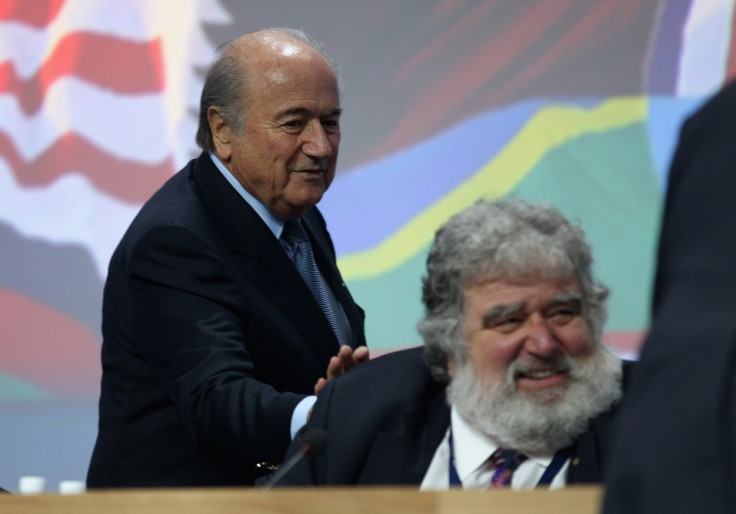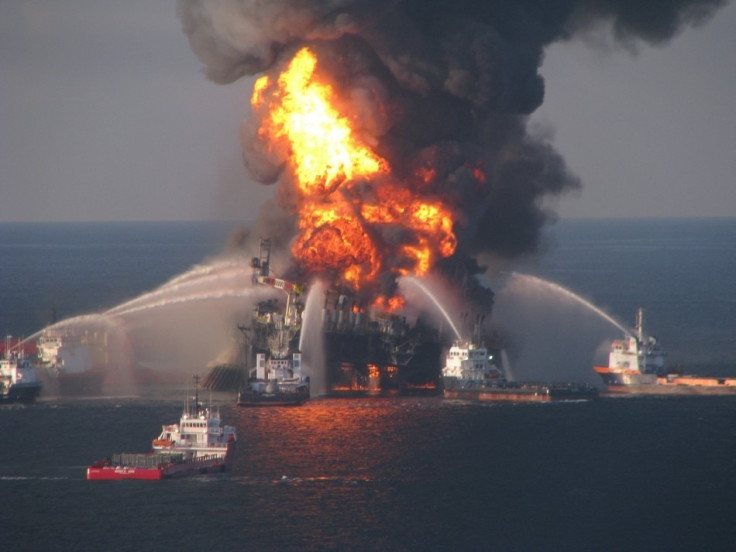Fifa corruption scandal: Maybe Team America should police the world after all

"The arrogant imperialist Americans are trying to police the world."
It is a common attack on the US, especially in light of Iraq and Afghanistan, two largely disastrous foreign policy adventures that have weakened America's moral right, as one of the world's largest democracies, economies and superpowers, to swing its truncheon about the place.
But as Fifa's top executives stare down the barrel of a Federal Bureau of Investigation (FBI) probe, a result of the US authorities deciding to take on world football's notorious governing body, perhaps we might ask ourselves this: should America be the world's anti-corruption policeman instead?
Having arrested almost all of the senior Fifa officials, and with at least one – Chuck Blazer, an American former Fifa executive committee member – admitting to taking bribes to vote a certain way on where World Cups would be held, the FBI has done what others in the world have failed to do for years.
Despite an endless stream of allegations against Fifa, which has been relentlessly and justifiably harangued by dogged investigative journalists, no country has unsheathed its sword of justice and started lunging at the men – and they are all men – who run world football.
Until now, that is, when the US has decided to act in the interests of the global community because it has the power and authority to do so.

The truth is that the US has some of the toughest penalties in the world when it comes to white-collar crime, mostly huge punitive fines and lengthy prison sentences in maximum-security institutions. Maximum penalties are commonplace in the US, where the integrity of doing business is taken more seriously than in most other places.
The US has a broad net for catching white-collar criminals, much broader than in the UK. According to the US Attorney's Manual, a "corporation may be held criminally liable for the illegal acts of its directors, officers, employees, and agents. To hold a corporation liable for these actions, the government must establish that the corporate agent's actions (i) were within the scope of his duties and (ii) were intended, at least in part, to benefit the corporation."
Knowing they will dodge conviction if they start talking to the authorities about the who, what, when, where and why of the fraud that has taken place, those in the firing line are more likely to help investigations. Companies, then, will generally comply.
But in much of English law against white-collar crime, to secure a conviction against a company as a legal entity prosecutors must show a "directing mind and will" of the firm – a senior manager or board member, for example – was personally involved in any fraud. This gives firms the incentive to clam up and be as stubborn as they can when faced with investigation.
It is not just fraud in which the US has harsh punishments for people and companies, it also regulates in cock-ups: just look at what has happened to BP after it was found grossly negligent for its role in the Deepwater Horizon oil spill disaster in the Gulf of Mexico. Hundreds of millions of gallons of oil poured into the sea after an explosion which killed 11 people, polluting nearby land, killing off wildlife and destroying local businesses.

US authorities did not muck about. They demanded answers to questions and that those responsible be held to account for their failings. Now BP faces a total bill of more than $40bn (£26bn, €35.3bn) in clean-up costs, fines, compensation and other payouts.
Then there is the notorious case of Enron, another energy giant, whose executives were overstating company profits on the accounts to boost the share price before selling off their stock at the top of the market. Many ordinary Enron employees, unaware of what was going on and who had invested in the firm's shares, lost their pensions when it went bankrupt. One of the executives on trial died before sentencing, but another got over 24 years in prison and had to pay back $42m to Enron scandal victims. Banks linked to the fraud had to pay out billions of dollars to Enron investors following class action lawsuits.
Now the US is purging its financial sector of toxins in the aftermath of the crash, forcing institutions to hand over billions of dollars in fines and compensation for misdeeds such as rate-fixing, mis-selling securities, rigging markets and more. US Attorney Generals are hounding banks, sniffing out potential criminal convictions for what went on.
Perhaps king of all the financial scandals was that involving investment honcho Bernie Madoff, who ripped off investors and enriched himself in a multi-billion dollar Ponzi scheme. Madoff got 150 years in prison after an investigation by US authorities and $17bn is being clawed back from him and the banks that aided him, through negligence rather than malice.
We live in a world blighted by corruption. Even in developed economies people are seen to be "getting away with it" either because regulators are turning a blind eye or the law is so weak – look no further than the lack of accountability at the top of the likes of RBS and News International for the financial crash and phone hacking respectively.
Team America: World Police may have been a cutting satire that mocked the US government's tendency to view itself as the arbiter of international law and order. But in light of what is happening to Fifa right now, perhaps a dose of US legal imperialism is just what the world needs.
© Copyright IBTimes 2024. All rights reserved.






